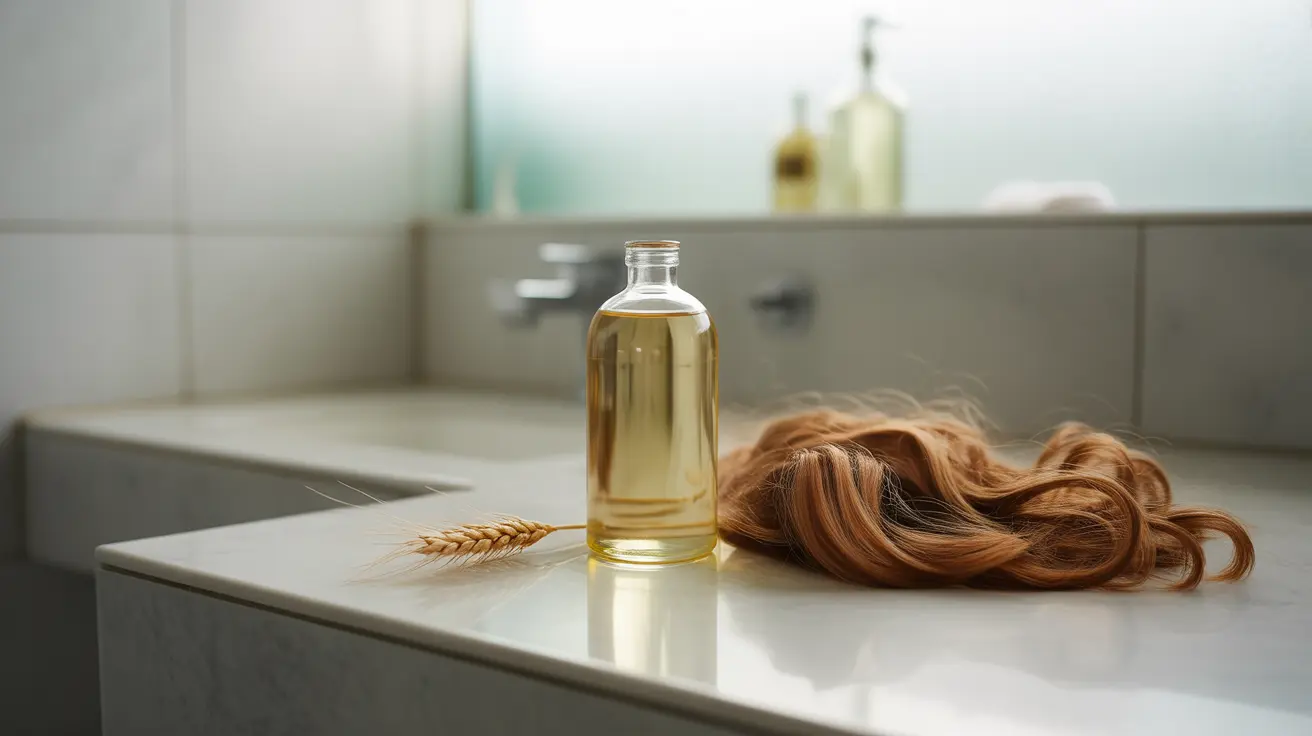Looking to enhance your hair care routine naturally? Sunflower oil might be the versatile solution you've been searching for. This lightweight, nutrient-rich oil has gained popularity for its potential benefits in hair care, from improving shine to supporting scalp health.
Rich in vitamin E, linoleic acid, and other beneficial compounds, sunflower oil offers multiple advantages for hair health. Let's explore how this natural oil can transform your hair care routine and help you achieve healthier, more manageable locks.
Key Benefits of Sunflower Oil for Hair
Sunflower oil contains several components that make it particularly beneficial for hair care:
- Vitamin E (antioxidant protection)
- Oleic acid (moisture retention)
- Linoleic acid (scalp health)
- Sesamol (UV protection)
- Omega-6 fatty acids (hair strength)
Nourishment and Protection
Sunflower oil's high vitamin E content helps protect hair from environmental damage while providing deep nourishment to both strands and scalp. This natural antioxidant works to combat free radicals that can damage hair follicles and impede healthy growth.
Moisture Balance and Shine
The lightweight nature of sunflower oil allows it to penetrate hair shafts effectively without leaving a heavy residue. It helps seal in moisture while adding a natural shine to dull, lifeless hair. Unlike heavier oils, sunflower oil won't weigh down your strands or make them appear greasy.
How to Use Sunflower Oil for Hair Care
Pre-Shampoo Treatment
Apply warm sunflower oil to your scalp and hair 30 minutes before washing. Gently massage it into your scalp to stimulate blood flow and ensure even distribution throughout your hair strands. This treatment helps prevent moisture loss during washing.
Deep Conditioning Treatment
Mix sunflower oil with your regular conditioner or create a DIY hair mask by combining it with other natural ingredients like honey or aloe vera. Leave the treatment on for 15-20 minutes before rinsing thoroughly.
Daily Frizz Control
Use a small amount of sunflower oil on your palms and apply it to damp or dry hair ends to control frizz and add shine. Start with a tiny amount to avoid oversaturation.
Best Practices for Application
To maximize the benefits of sunflower oil for your hair:
- Always use cold-pressed, unrefined sunflower oil
- Start with small amounts to find what works for your hair type
- Focus application on mid-lengths and ends for fine hair
- Apply more generously to thick or coarse hair types
- Perform a patch test before full application
Frequently Asked Questions
Is sunflower oil good for improving hair softness and shine?
Yes, sunflower oil is excellent for improving hair softness and shine. Its lightweight molecular structure allows it to penetrate the hair shaft effectively, providing moisture and creating a natural shine without leaving hair feeling greasy.
How does sunflower oil help with scalp health and dandruff?
Sunflower oil's anti-inflammatory properties and vitamin E content help soothe scalp irritation and maintain healthy moisture levels. Regular scalp massages with sunflower oil can help reduce dandruff by balancing scalp oil production and removing dead skin cells.
Can sunflower oil prevent hair breakage and promote hair growth?
The vitamin E and essential fatty acids in sunflower oil help strengthen hair strands, reducing breakage. While it doesn't directly stimulate hair growth, it creates a healthy scalp environment that supports natural hair growth cycles.
What is the best way to use sunflower oil for hair conditioning and frizz control?
For optimal conditioning, apply warm sunflower oil to damp hair and leave it on for 30 minutes before shampooing. For frizz control, use a small amount on dry hair ends. The key is starting with minimal amounts and adjusting based on your hair's needs.
Is sunflower oil safe to use daily on all hair types without causing greasiness?
Sunflower oil is generally safe for daily use on most hair types, but the amount and frequency should be adjusted based on your hair texture and thickness. Fine hair may need less frequent application, while thick or coarse hair can typically handle daily use without becoming greasy.




